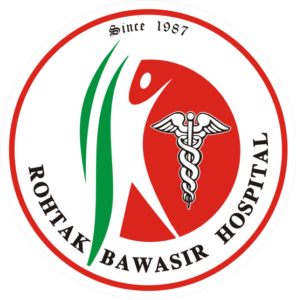The Hidden Causes of Piles: What Your Body Is Trying to Tell You


Updated on: 4th Jun 2024
Piles, also known as hemorrhoids, are a common but often misunderstood condition. While many people associate them with prolonged sitting, constipation, or pregnancy, there are several lesser-known causes that could be signaling underlying health issues. Understanding these hidden causes can help in preventing and effectively managing piles. This blog explores what your body might be trying to tell you when piles develop unexpectedly.
Chronic Inflammation and Digestive Disorders
Inflammatory conditions like Crohn’s disease, ulcerative colitis, or irritable bowel syndrome (IBS) can contribute to the development of piles. These conditions cause chronic inflammation in the digestive tract, leading to frequent bowel movements, diarrhea, or constipation—all of which strain the rectal veins. If you have recurring piles, it may be worth evaluating whether you have an undiagnosed inflammatory condition.
Poor Hydration and Diet Deficiencies

Water plays a crucial role in digestion and bowel regularity. Dehydration leads to harder stools, making bowel movements more difficult and increasing the risk of piles. Additionally, deficiencies in fiber, magnesium, and vitamin C can contribute to constipation and straining. If you’re dealing with frequent hemorrhoids, assessing your hydration levels and nutritional intake is crucial.
Sedentary Lifestyle and Poor Circulation
Long hours of sitting, whether for work or leisure, can cause poor circulation in the lower body, leading to increased pressure in the rectal veins. A sedentary lifestyle weakens the muscles supporting the rectum, making piles more likely. Regular movement, stretching, and exercise can help improve circulation and prevent this issue.
Excessive Caffeine and Alcohol Consumption
Both caffeine and alcohol contribute to dehydration and can cause digestive issues, including constipation or diarrhea. Additionally, these substances can irritate the digestive tract, leading to inflammation and increased pressure in the rectal veins. If you experience frequent piles, moderating your intake of these beverages may help reduce flare-ups.
Unmanaged Stress and Anxiety
Stress has a profound impact on digestive health. It can slow digestion, leading to constipation, or speed it up, causing diarrhea—both of which are risk factors for piles. Additionally, stress increases muscle tension, which may contribute to straining during bowel movements. Practicing stress management techniques like meditation, yoga, or deep breathing can help regulate bowel movements and reduce the risk of hemorrhoids.
Hormonal Imbalances
Fluctuations in hormones, particularly during pregnancy, menopause, or thyroid disorders, can affect digestive health. For instance, progesterone slows down digestion, which may lead to constipation and piles. If you notice piles coinciding with hormonal changes, consulting a healthcare professional can help determine the underlying cause.
Chronic Coughing or Respiratory Issues
Persistent coughing due to conditions like asthma, bronchitis, or chronic obstructive pulmonary disease (COPD) can increase intra-abdominal pressure, leading to the development of piles. If you suffer from a chronic cough and experience recurring hemorrhoids, addressing the underlying respiratory issue may help alleviate the problem.
Heavy Lifting and Strenuous Exercise
While exercise is beneficial, improper weightlifting techniques or engaging in excessive high-intensity workouts can put strain on the pelvic region. This increased pressure on rectal veins can lead to piles over time. Practicing proper lifting techniques and balancing strenuous activities with relaxation exercises can prevent this issue.
Genetic Predisposition
Some individuals have a genetic predisposition to weaker vein walls, making them more susceptible to developing hemorrhoids. If piles run in your family, taking preventive measures such as maintaining a fiber-rich diet, staying active, and avoiding prolonged straining can help reduce the risk.
Unrecognized Food Intolerances
Certain food intolerances, like lactose intolerance or gluten sensitivity, can cause digestive issues such as bloating, constipation, or diarrhea. These irregular bowel movements increase the likelihood of piles. If you frequently suffer from digestive discomfort, getting tested for food intolerances might help in preventing recurring hemorrhoids.
Unrecognized Food Intolerances
Some medications, such as painkillers, antidepressants, and iron supplements, can cause constipation, leading to straining during bowel movements. If you suspect that your medication may be contributing to your hemorrhoids, speak with your healthcare provider about possible alternatives or ways to counteract constipation.
Aging and Weakened Connective Tissues
As we age, the connective tissues supporting the veins in the rectum and anus naturally weaken. This makes older adults more prone to developing piles, even with minimal straining. Strengthening these tissues through diet, hydration, and pelvic floor exercises can help mitigate the risk.
Conclusion
Piles are more than just an uncomfortable condition; they can be a signal from your body that something is off balance. Whether it’s a digestive disorder, poor hydration, chronic stress, or hormonal changes, identifying the root cause can lead to effective management and prevention. By making necessary lifestyle changes and seeking medical advice when needed, you can take control of your health and keep piles at bay.
Meet Our Specialists

Dr. Raj Kumar Garg (B.A.M.S.)
40+ Years of Experience

Dr. Rahul Garg (B.A.M.S.)
15+ Years of Experience

